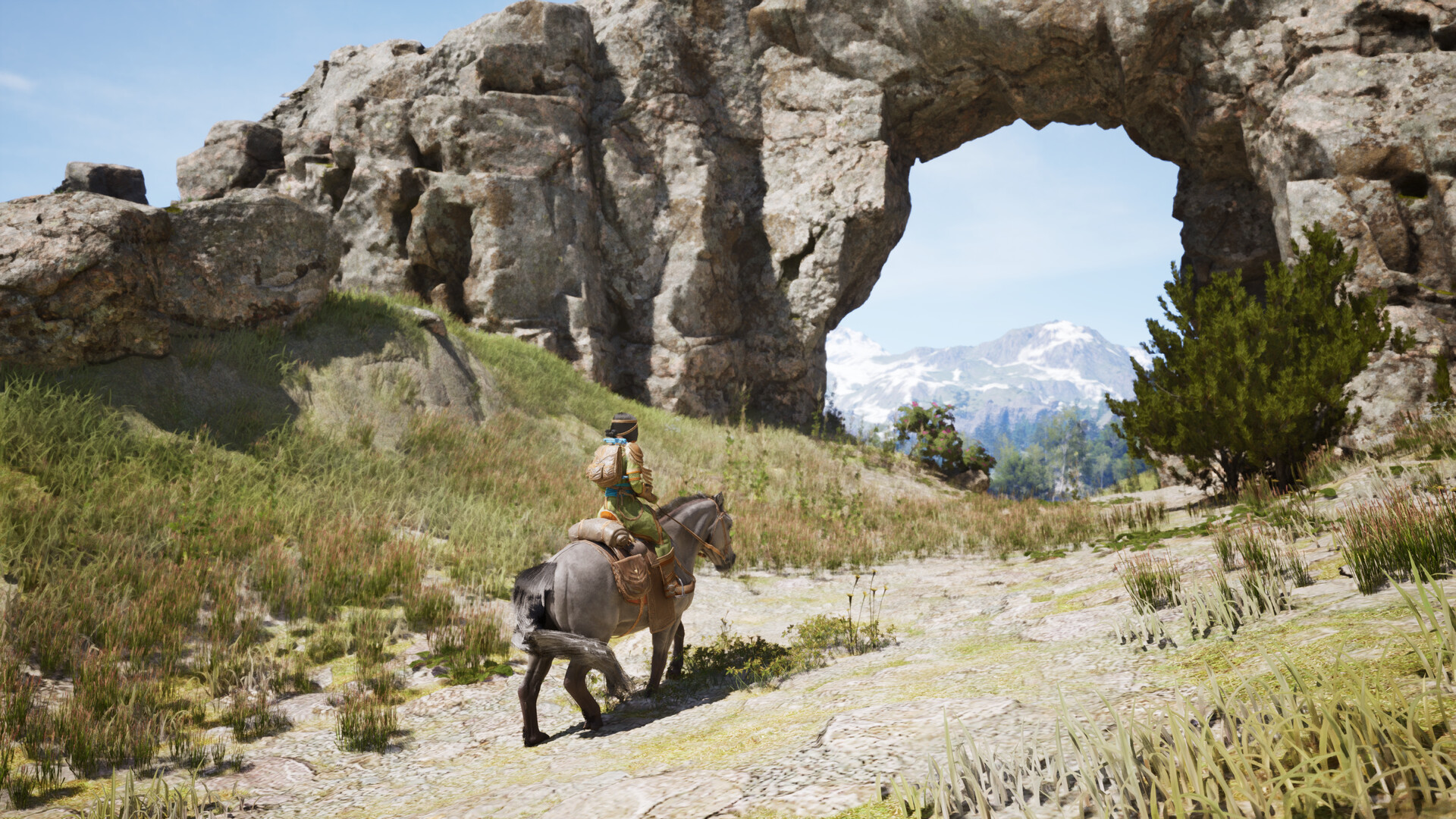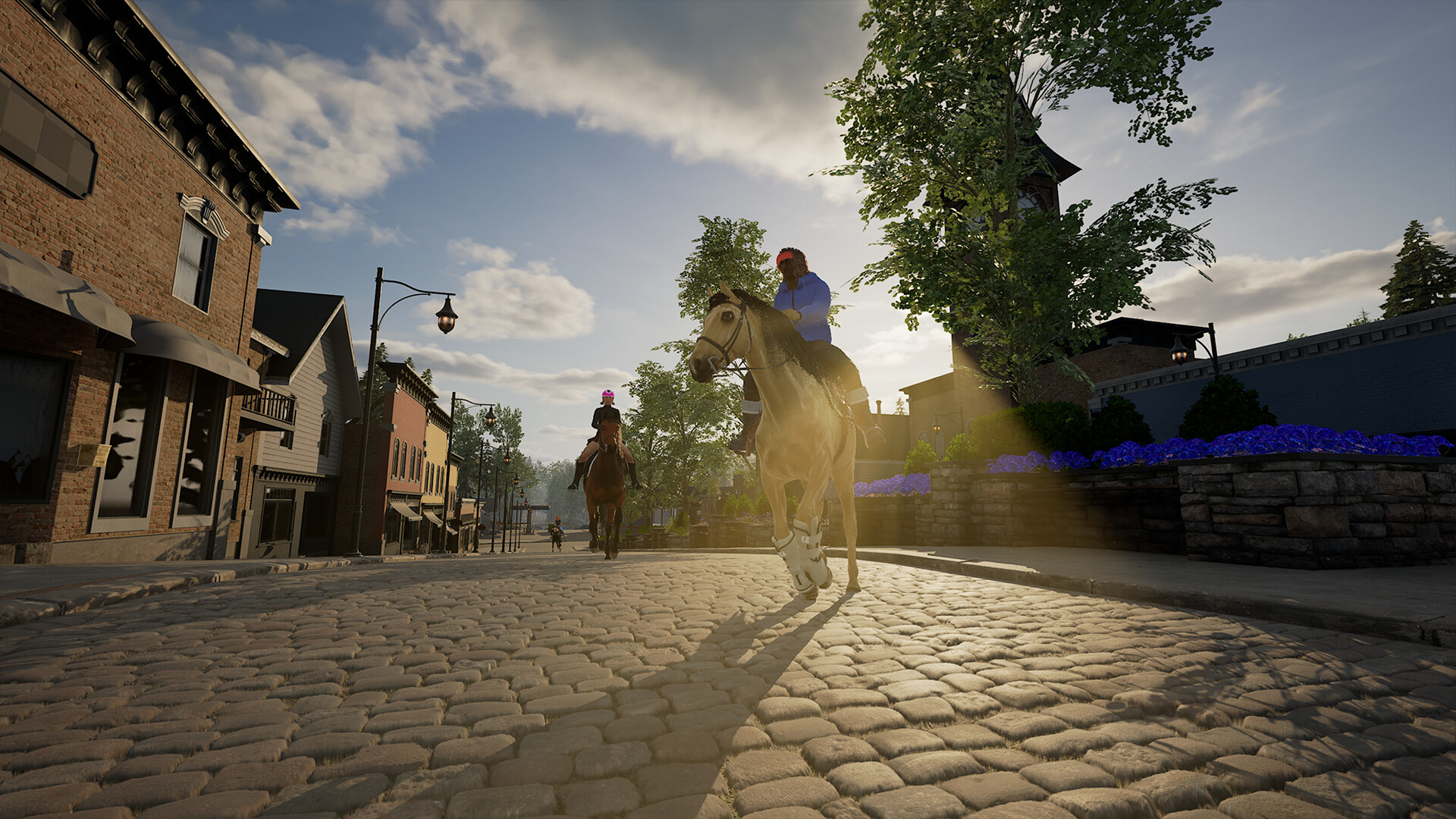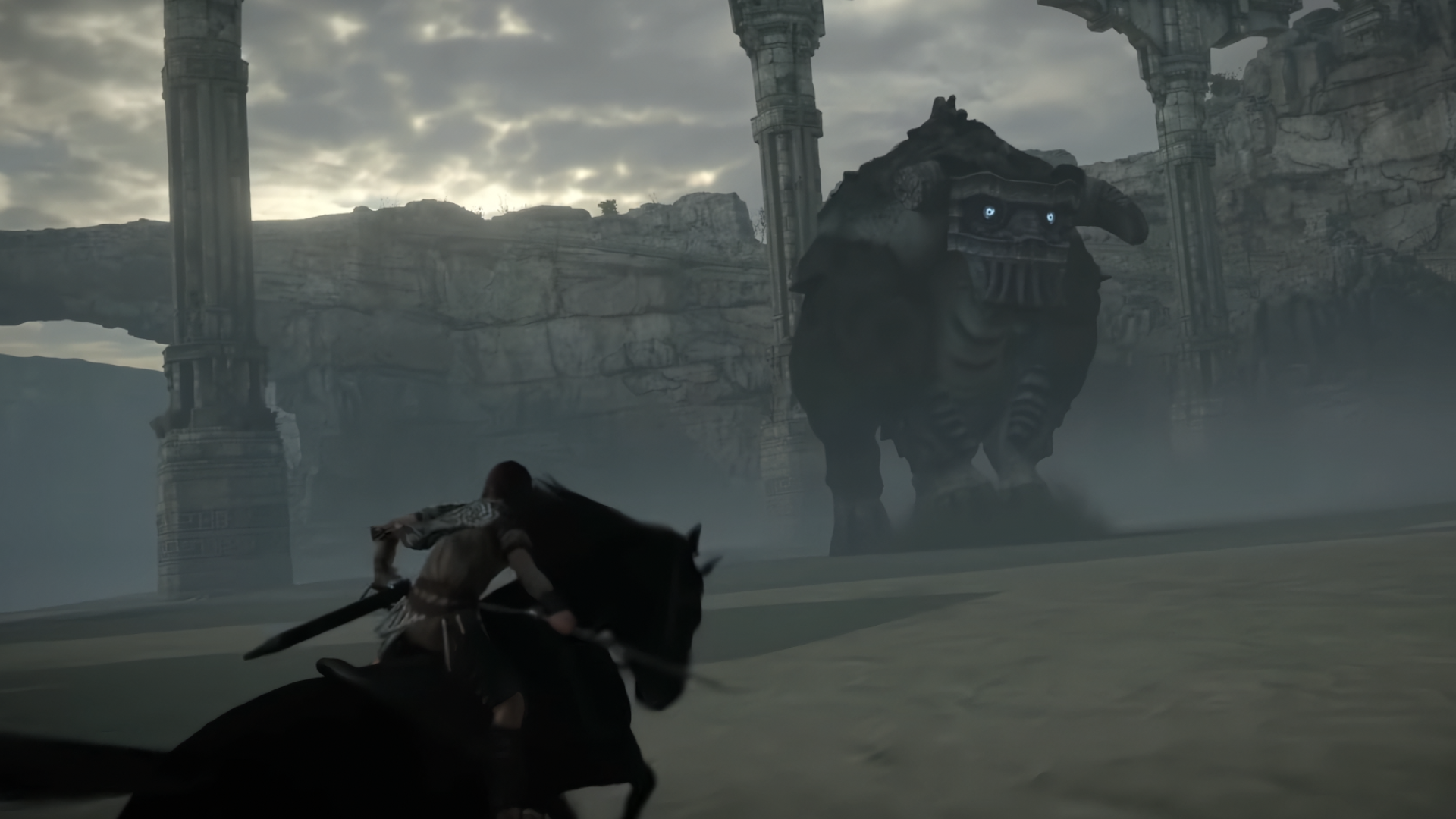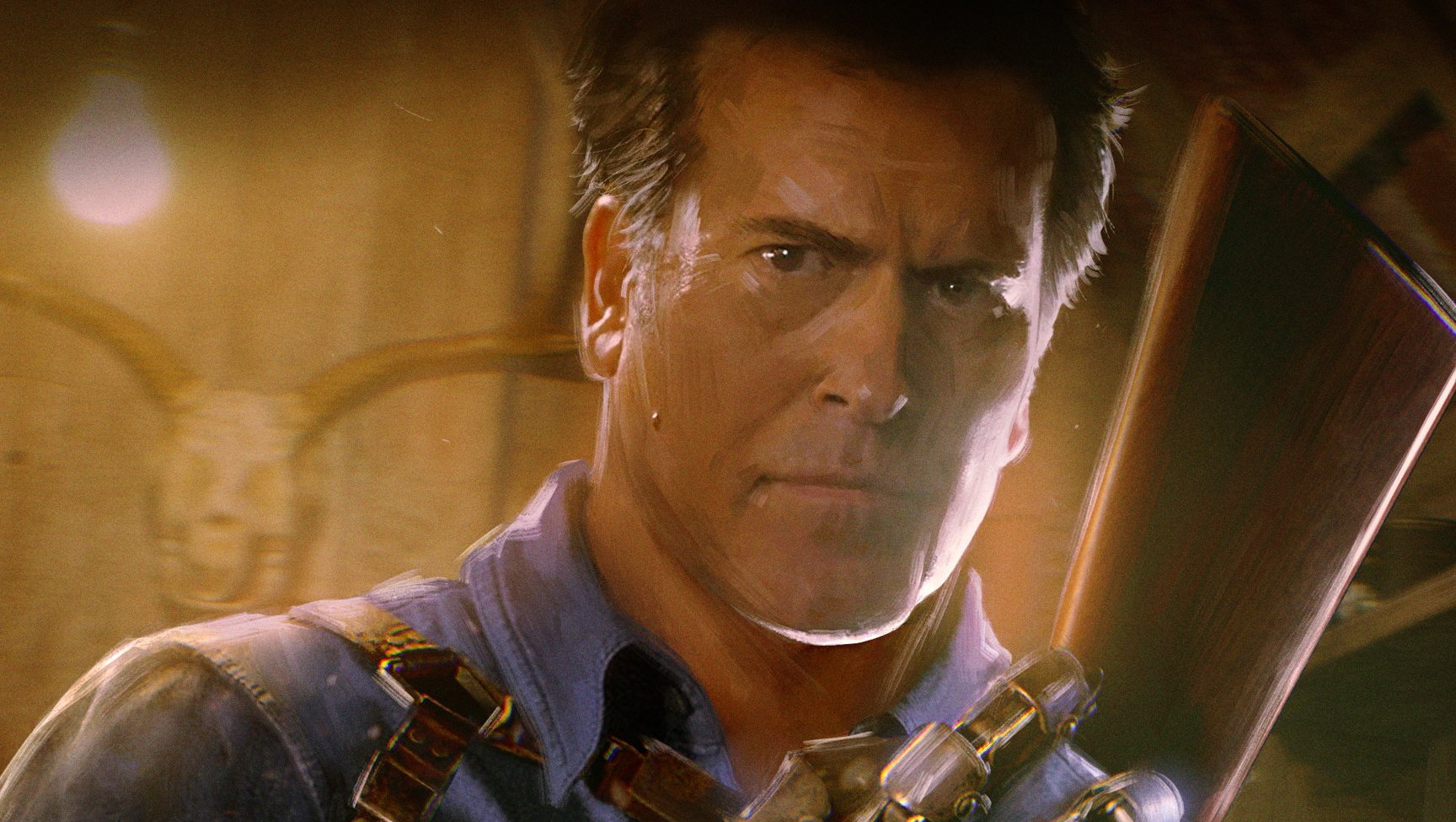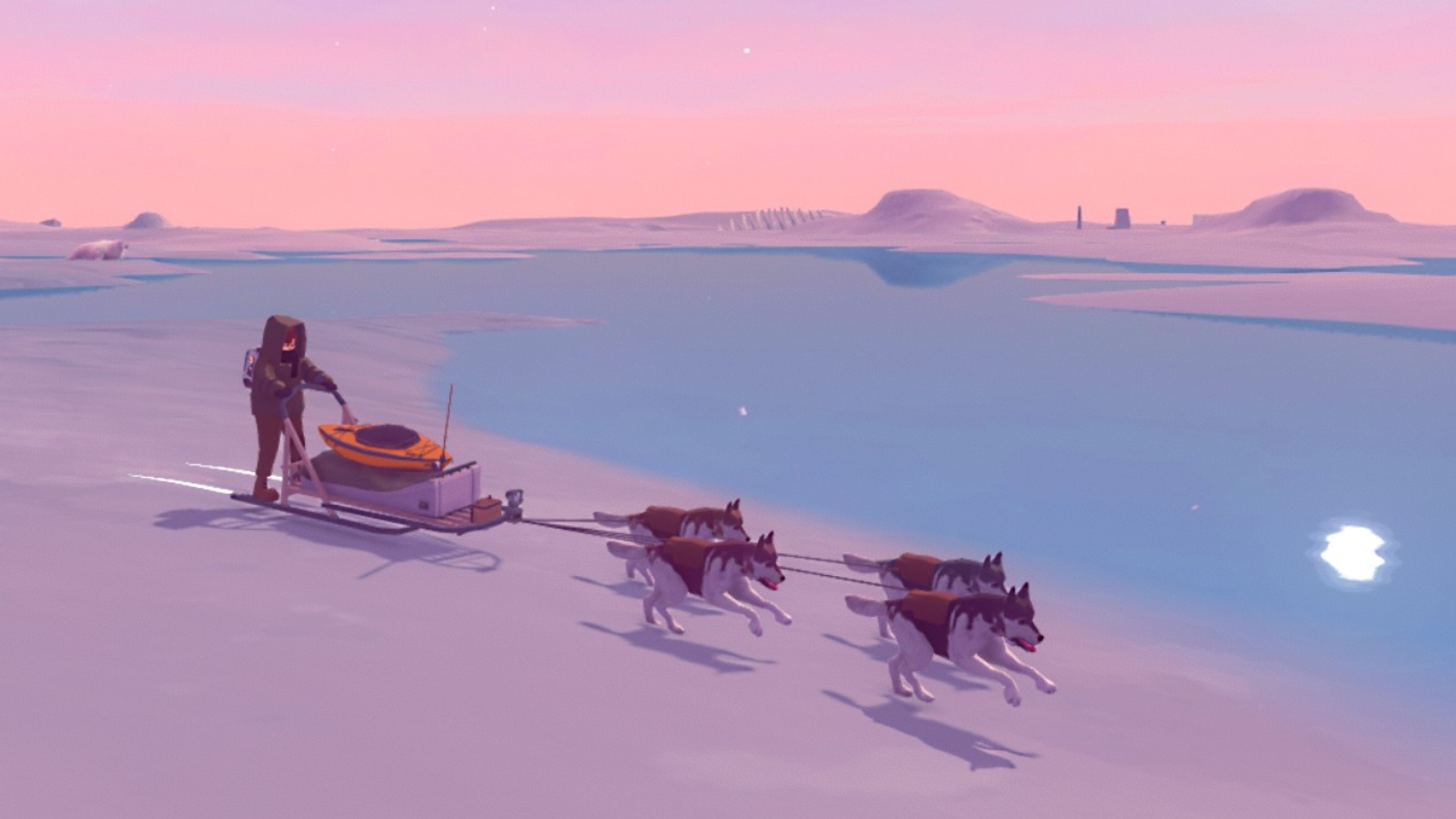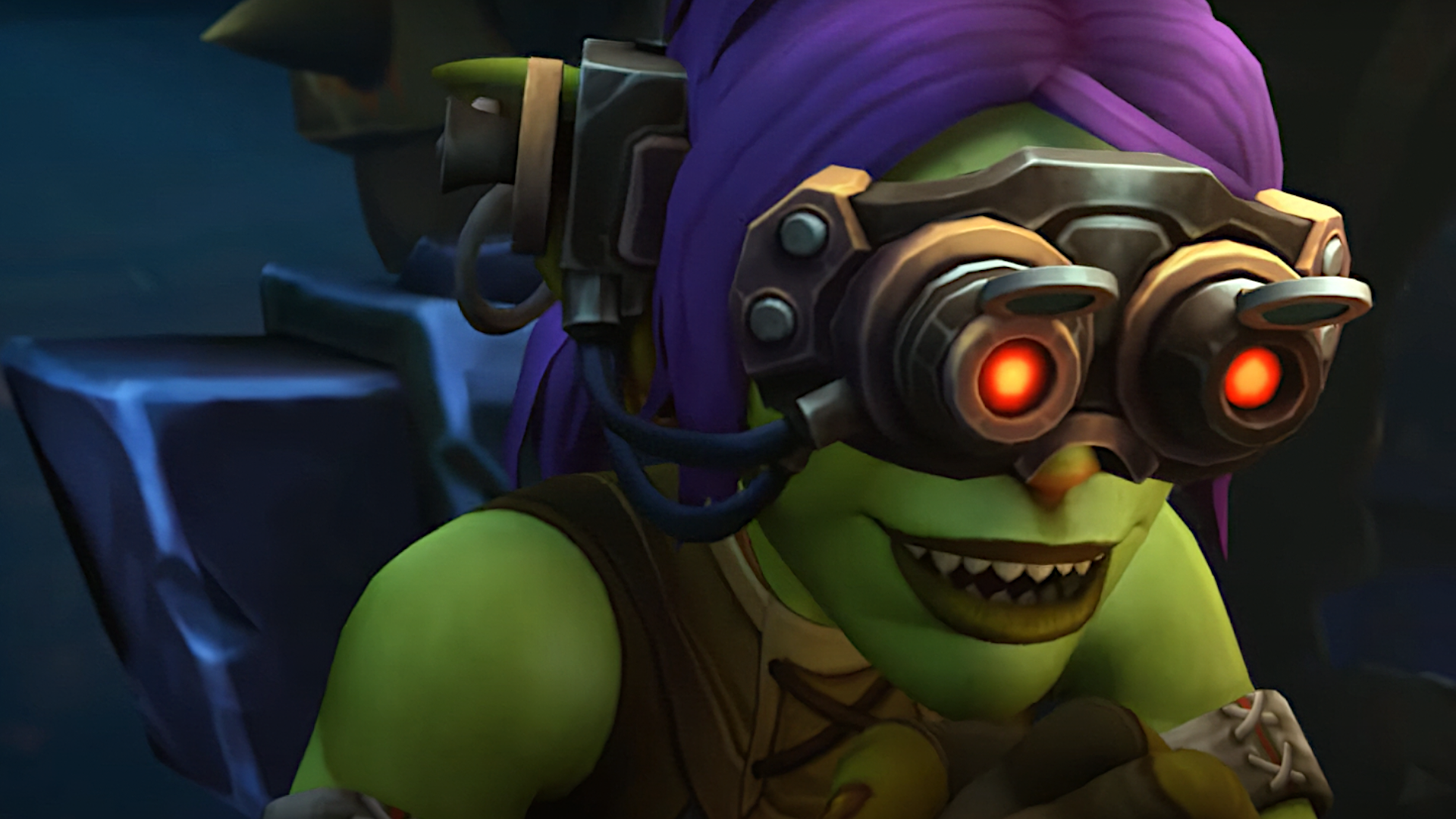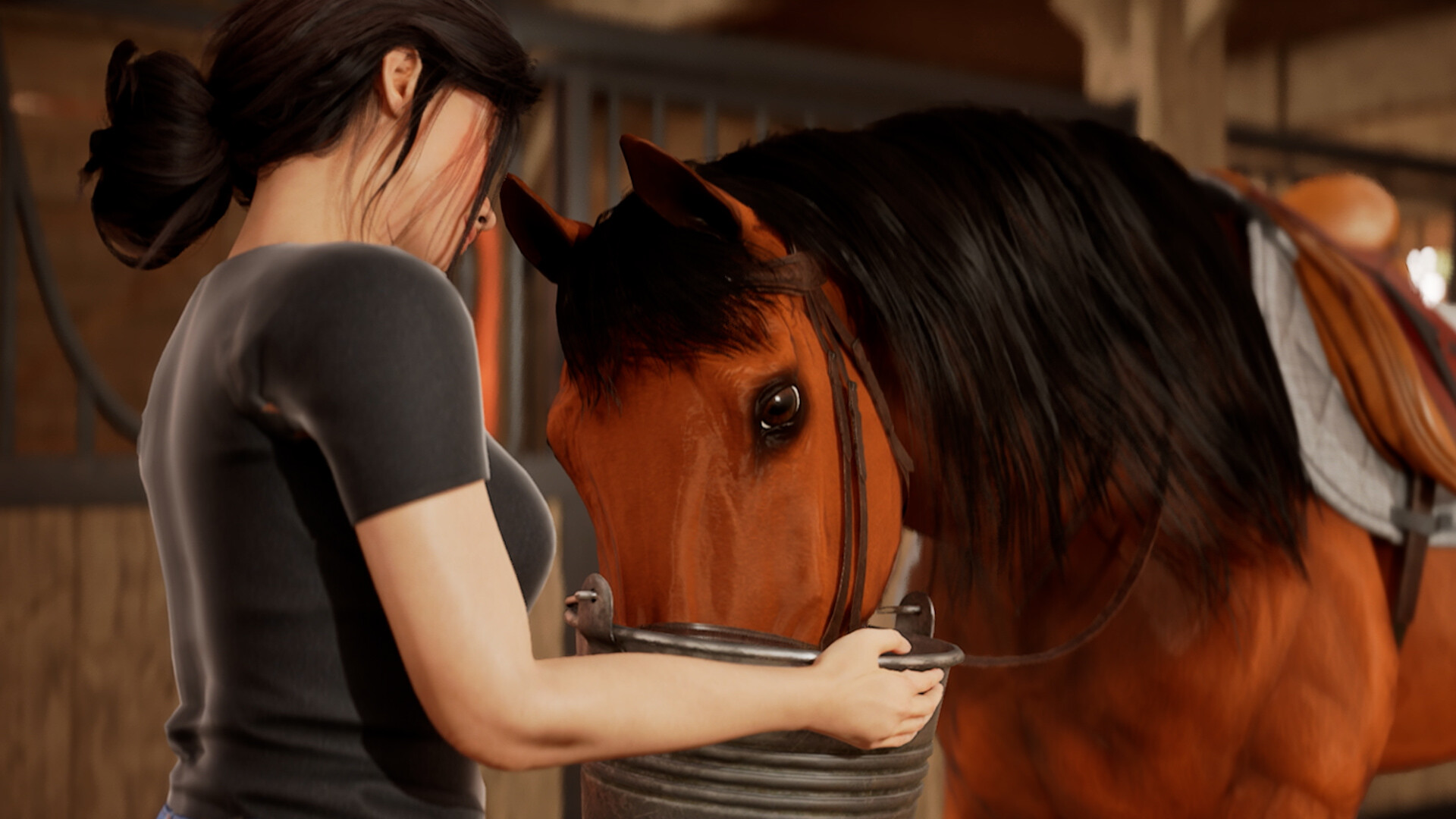
"The genre didn't grow up with us," says consultant and prolific horse game appreciator Alice Ruppert.
Dear reader—and potentially, dear horse enthusiast—I want to clarify something. While I do like animals, I am nowhere near a ‘horse person’. The only experience I’ve had with one of humanity’s oldest animal friends is a very terrified stint on a farm in the rural south of England when I was very little. Which is partially why Equinox: Homecoming utterly fascinated me.
I bring Equinox: Homecoming up less as the subject of this article and more its origin story, but it’s still worth talking about. It’s a murder-mystery horse MMO being developed by people who worked on World of Warcraft and Helldivers. The core concept, let alone the developer pedigree, all but kept me up at night. I had to find someone who knew why this thing existed—what was I missing?
A lot, it turns out. There’s a huge, brimming community of horse game enthusiasts who have been really underserved—and after speaking with one of gaming’s horse experts, a consultant and owner of horse game website The Mane Quest, I am fully on their side. Horses can be better, please mare—sorry, bear—with me.
Old town roads
Alice Ruppert studied game design at the Zurich University of the Arts, but has worked as a programmer, producer, and presently a consultant—including during the early days of Windstorm: The Legend of Khiimori, a game that recently kickstarted to the tune of a staggering £500,000. The Mane Quest also hosts an enormous 500-page wiki, which I’m delighted to report has a central hub called “The Mane Page”.
Ruppert prefers to call horse games “a niche rather than a genre”, as well as differentiating between “a horse game and a game with horses.” Simply put, a horse game has a central relationship around a horse, in the same way a farming sim has a central relationship to a farm—whereas a game with horses is a game with a horse in it. Ergo, just about any open-world action adventure/RPG in the last decade.
It’s within this database that Ruppert is able to show me the full picture of an underserved niche—which she’s given a full talk on, if you want a more in-depth history. Between 2000-2010, there was a golden age for equestrian-centric games that has since sputtered out.
“Many of us,” Ruppert tells me, “Have played some of these horse games as kids, and we all usually had like one or two that we were really in love with. And then we tried to find similar ones [as adults] and realized that all the other ones were ‘bad’ … The general trend is that there was a good time [for horse games], and nothing lived up to it after it.”
There was a good time [for horse games], and nothing lived up to it after it.”
Alice Ruppert
Horse gamers have had to make do—she brings up The Rift Trails, a group of enthusiasts we’ve actually written about on the site before. For those not in the know, The Rift Trails is a full community of players who are using Rockstar’s landmark Wild West open world game to, well, ride horses and vibe.
“Imagine,” Ruppert says, “How many more people would play these games if they only had to buy them, rather than buy a game, download a server, find a community, use mods, and so on.” She runs down the list. Minecraft, Second Life, and even ARK: Survival Evolved have active horse gamer modding communities. “I have a few people in my community that make a living off selling horse models to people on Second Life,” she adds.
So why, if you’ve got an enthusiastic and supportive community—clearly prepared to throw money at a game that scratches their personal itch—have we not had the horse-game equivalent of a Stardew Valley come along and knock its way through gaming culture? Where’s our Eric Barone of the equestrian world? Ruppert’s a touch stumped, too, but she’s got a few ideas.
Why the long face?
Talking once more about Equinox (a game she’s done some freelance consulting work for) Ruppert says they “pitched this game to the investors, and the investors say: ‘Oh, right, there’s a market there.
“We can see that Star Stable Online has incredibly impressive player numbers, and it’s for kids, and those kids will eventually age out of it and still be interested in a more grown up horse game’. They agree that the evidence is there, but then they don’t consider that enough to actually invest a few million dollars into it.
“Game investment and publishing works based on what has already worked, you know, and that’s one step too far for safe investments. Which is ironic, because multiplayer PvP live-service shooters aren’t safe investments, either. Those fail all the time—and yet.” And yet indeed.
There is the draft horse in the room that “sexism and undervaluing female players and their interests plays a big part … I do think it’s woven in there, this view that games are for boys and horses are for girls. But Red Dead Redemption has a lot of male players, and I don’t think anyone’s bothered by there being horse breeds and detailed horses.”
But it’s not just a matter of perception, either. A whole stable of less-than-stellar efforts have muddied waters even further. “We played [horse games] as kids, and we tried other ones, and then we were constantly disappointed by them,” Ruppert explains. “Not all of them were bad. There were definitely good and interesting ones, but it was a bit of a trend that many of them were underwhelming.
They just did whatever their publisher told them to do … The genre didn’t grow up with us.”
Alice Ruppert
“They used to be made with, like, really small budgets and made by people who didn’t actually know anything about horses. They just did whatever their publisher told them to do … The genre didn’t grow up with us.”
The indie scene, as Ruppert tells me, has its problems as well. “It’s just a bit of bad luck that no competent, experienced indie studio has tackled this topic, yet, because in the same way that Stardew Valley revived Harvest Moon-likes, there could’ve been a passionate solo dev or a small team doing something similar for the horse gamer.”
It’s at this moment that it sort of clicked for me. Again, I’m not a horse person—but what is the main difference between a game focused around a farm and a game focused around an animal? Not much! Conversely, I’m a fan of fantasy—and if every single fantasy game from the 2010s onwards had been bad, underfunded, or the same boilerplate concept and mechanical template? I think I would’ve quite reasonably lost my gourd. Horse gamers, I feel for you.
Ruppert says she’s “benevolent towards these projects, and I want to see them grow, and I promote them when I get the chance. But I also think they make some very basic mistakes. Horse game niche devs are too far apart from the rest of the indie game crowd and its learnings.”
The frustrating thing, she expresses, is that they’re simple ones to course-correct: “Not clearly defining your game loop, not having a unique identity and just being a horse game, not having your marketing materials ready by the time you start promoting on social media, not having a Steam page up when it actually makes sense to start gathering wishlists, like things like that.”
But there’s also the fact that a lot of them don’t really try and marry their niches to different genres. Some of Ruppert’s dream games aren’t the “save the rundown family farm again” repeats she’s clearly tired of, but are easy no-brainer wins that exist almost for zero legitimate reason.
Pokémon Snap with horses, for example—or a Pacific Drive-esque roguelike where you’re upgrading your horse with eldritch powers and abilities. Which, if I’m being honest, sounds like something I’d play in a heartbeat. Ruppert maintains, though, that outside of the niche of horse games, plenty of titles stand a lot to gain.
Pulling Agro
“I also think that anyone playing games without, like, a super deep interest in horses will profit if we start properly exploring that overlap … People are fine with how their horses work in games like Assassin’s Creed or whatever. But even there, it would be cool if we could have a bit more polish on the horse features. That’s not gonna hurt you and your gameplay, it must bring you some joy as well.”
This was another lightbulb moment for us in our conversation, because I remembered how impactful players’ relationship to Agro in Shadow of the Colossus was—and Ruppert’s exactly right when she says that so “many gamers have had some sort of emotional attachment to their game horse, and really powerful experiences with them, like galloping across Hyrule Field for the first time when you get Epona.
“Those are powerful moments. But I also think that many games are missing out on them because they don’t take this topic seriously … they’re basically just bicycles. Nobody bothers including them in cutscenes or doing anything of value, and it’s just such a lost opportunity … Did you even think about giving your horse a personality? Like, that would be cool, wouldn’t it?”
Listen, it’s no secret I’m very taken by enthusiasm—if I don’t understand something, my favourite thing to do is to sit myself down in front of someone and ask them to infodump their secret horse lore on me.
But I do think Ruppert is onto something here. Horses are in a lot of games when you stop and think about it. Giving you a steed is the first option most devs default to when they want a big, breathtaking world but also don’t want to make you run everywhere. Yet, because the niche behind this animal has lain dormant and discarded for so long, their presentation’s stagnated, too. Cursed to remain a percentile speed increase with some new animations, and nothing more.
Those are powerful moments. But I also think that many games are missing out on them because they don’t take this topic seriously.”
Alice Ruppert
And thinking on it, there are plenty of game genres that would be made super interesting by putting the horse as their focal point. The tank controls of old-school horror games, often praised for making moments of panic more engaging, could just as easily be replicated by having to control a panicked steed—and I am, also admittedly, still thinking about the eldritch superpowered horse from that Pacific Drive concept. I’d play that thing in a hoofbeat.
As Ruppert says, just adding a little more sauce onto your relationship to a horse (or any mount, for that matter) in an open world game is bound to make it better. Red Dead Redemption having its own horse girl gang who’ll shoot you dead if you disturb their peace is exactly the kind of emergent awesomeness I look for in an online community.
Overall, I’m delighted to discover this antechamber in the mansion of gaming I had no idea existed. I might not be the main audience for a game like Equinox or The Legend of Khiimori, but there’s clearly something here. Some nugget of untapped potential that may finally unleash a wave of pent-up energy that’ll improve tons of other genres and niches as well. Horses are everywhere in videogames, and they indeed could be much better.

